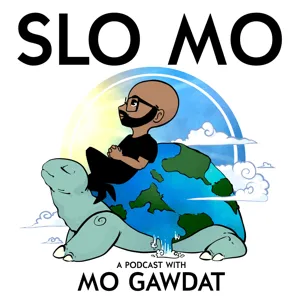When you look at the world, it can feel like we're in a precarious moment. If you’ve listened to past episodes, you know we call this the meta-crisis — an era of overlapping and interconnected crises like climate change, polarization, and the rise of decentralized technologies like synthetic biology. It can feel like we’re on a path to destroy ourselves.
That's why we’re talking to Rick Doblin, the founder and executive director of the Multidisciplinary Association for Psychedelic Studies, or MAPS. They’re a nonprofit focused on educating and researching the benefits of using psychedelic therapy to address PTSD and promote humane ways of relating worldwide.
Doblin’s vision is for nothing less than a transformation of society through psychedelic-assisted therapy – not for the drugs themselves, but for their ability to help us react to one another with compassion, appreciate differences, and accept criticism.
Given the perma-crisis we face, it’s provocative to think about a tool that, when prescribed and used safely, could help us overcome rivalrous dynamics out in the world and on social media. If we rescue our hijacked brains, we can heal from the constant trauma inflation we get online, and shrink the perception gap that splits us into tribes.
Both MAPS and Center for Humane Technology want to understand what helps minds heal and be free. We invite you to keep an open mind about a different kind of humane technology as you listen to this episode.
Correction:
Doblin attributes a quote to Stan Grof about psychedelics helping your ego be “transparent to the transcendent.” In his book Pathways to Bliss, Joseph Campbell wrote, "When a deity serves as a model for you, your life becomes transparent to the transcendent as long as you realize the inspiring power of that deity. This means living not in the name of worldly success and achievement, but rather in the name of the transcendent, letting the energy manifest through you.” Grof was likely paraphrasing Campbell’s work and applying it to psychedelics.
Additional credits:
The episode contains an original musical composition by Jeff Sudakin. Used with permission.
RECOMMENDED MEDIA
Multidisciplinary Association for Psychedelic Studies (MAPS)
The non-profit founded by Rick Doblin in 1986 focused on developing medical, legal, and cultural contexts for people to benefit from the careful uses of psychedelics and marijuana. MAPS has some open clinical trials; see details on their website.
Rick Doblin’s TED talk
In this fascinating dive into the science of psychedelics, Doblin explains how drugs like LSD, psilocybin and MDMA affect your brain - and shows how, when paired with psychotherapy, they could change the way we treat PTSD, depression, substance abuse and more.
How to Change Your Mind by Michael Pollan
Pollan writes of his own consciousness-expanding experiments with psychedelic drugs, and makes the case for why shaking up the brain's old habits could be therapeutic for people facing addiction, depression, or death.
How to Change Your Mind on Netflix
The docuseries version of Pollan’s book
Breath by James Nestor
This popular science book provides a historical, scientific and personal account of breathing, with special focus on the differences between mouth breathing and nasal breathing.
Insight timer
A free app for sleep, anxiety, and stress
RECOMMENDED YUA EPISODES
You Will Never Breathe the Same Again with James Nestor
https://www.humanetech.com/podcast/38-you-will-never-breathe-the-same-again
Two Million Years in Two Hours: A Conversation with Yuval Noah Harari
https://www.humanetech.com/podcast/28-two-million-years-in-two-hours-a-conversation-with-yuval-noah-harari
Your Undivided Attention is produced by the Center for Humane Technology. Follow us on Twitter: @HumaneTech_





